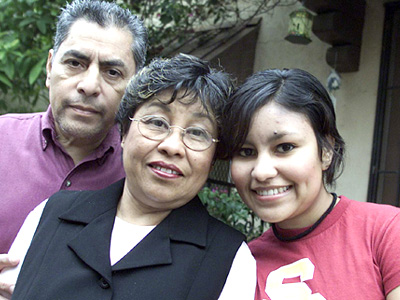
On April 1, 2010, less than a year from now, the whole population of the country will be measured. Whether you are a citizen, an immigrant, legal, illegal, homeless or an international student, if you are in the United States at that time, you will be counted.
How important is it to be counted? How do we include everyone? These questions were answered at a May 5 roundtable discussion at New America Media, where ethnic media met with government officials to discuss how to get the message out to those who are most likely to avoid the count -- immigrants and minorities.One reason that immigrants, especially the undocumented, may not want to be a part of the census is that they are afraid that their information will be used by government agencies against them.
"Immigrants tend to have fear and suspicion toward government agencies because of issues like race and profiling that the government used to sanction," said Susan Hsieh, representative for Chinese for Affirmative Action (CAA). "A lot of distrust and fear are the response to what has been happening in history. The big job for the Census Bureau is to work together to inform people that they don't need to be afraid, there is no way that the Census Bureau will use that information to put them in jail or deport them."
In fact, of the 10 questions on the census form, which is printed in five different languages including Spanish, not one question asks about immigration status. So even if someone attempts to use that information -- which is illegal -- it is impossible to find out someone's residential status from the census data, said Carlos Rodriguez, a partnership specialist with the U.S. Census Bureau.
Being the first avenue that immigrants go for news, ethnic media play a significant role in helping the census improve the count because their readers are the ones who historically have been undercounted, said Phil Ting, assessor-recorder of San Francisco. Ting said San Francisco has an undercounted population of 100,000 which, if it had been figured into the population, would have gotten the city an extra $29 million per year in funding. And ethnic newspapers, TV and radio programs are the media that enter the living rooms of many in this undercounted population.
It all comes down to money, and every single person matters. Key local, state, and federal decisions are based on census data. Population figures not only affect political representation; they also help determine how the $300 billion in annual federal funding is allocated, said Ralph Lee, regional director of the U.S. Census Bureau's Seattle region.
Mike Burns, deputy regional director of the U.S. Census Bureau's Seattle region, suggested that immigrants take a look at what effect the census data has at the local level. "Look around the neighborhood," he said. The schools, community centers, immigrant transition English classes are all affected by the census, which counts the population, and decides how much government funding it is getting.

